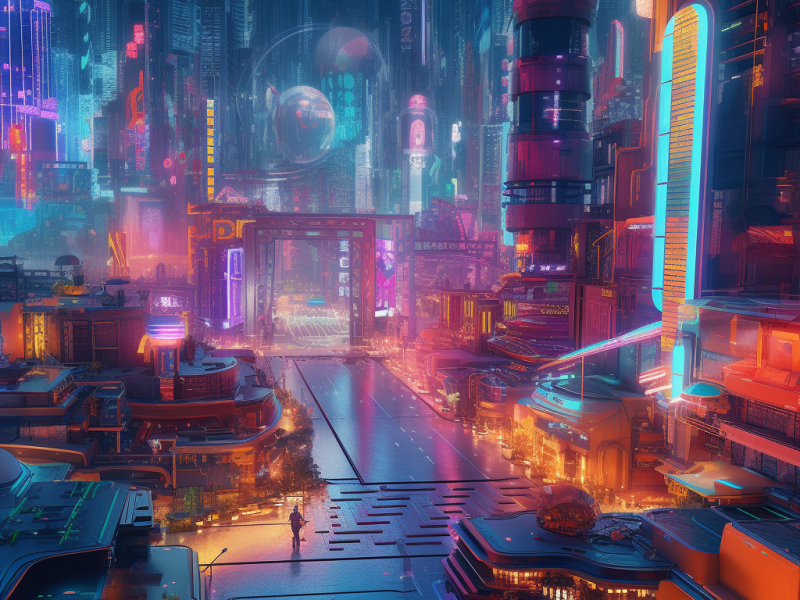Artificial Intelligence (AI) has been seamlessly integrated into our daily lives, automating mundane tasks and making our lives easier. With recent advancements like generative AI, digital art, and other disruptive applications, AI is becoming more intelligent and versatile. This article provides an in-depth exploration of AI’s impact on various industries and its potential to revolutionize the way we live and work.
Outline
- Introduction to Artificial Intelligence
- AI in Everyday Life
- Generative AI
- Digital Art and AI
- AI Advancements
- AI Disruption
- Glossary of AI-related terms
- Conclusion: Key points and future outlook
Introduction to Artificial Intelligence
Artificial Intelligence has been around for decades, gradually evolving and merging with our daily lives. From automating repetitive tasks to making complex decisions, AI has grown to become an indispensable tool in various industries. As technology advances, AI continues to become more intelligent and versatile, leading to new disruptive applications and significant impacts on our lives.
AI in Everyday Life
AI has been seamlessly integrated into our daily routines, often without us even noticing. From voice assistants like Siri and Alexa to recommendation algorithms on Netflix and Amazon, AI works behind the scenes to make our lives easier and more efficient. As AI technology improves, we can expect even more sophisticated applications to emerge, enhancing our day-to-day experiences.
Generative AI
Generative AI, a significant advancement in artificial intelligence, involves algorithms that create entirely new content based on learned data. With techniques like Generative Adversarial Networks (GANs), Variational Autoencoders (VAEs), and Transformer Models, generative AI has found applications in digital art and design, music composition, natural language processing, and drug discovery. However, challenges such as data quality, computational resource requirements, and ethical concerns need to be addressed for the responsible development of this technology.
As generative AI continues to evolve, we can anticipate improvements in the quality and diversity of generated content and expanded applications across various industries. The potential to revolutionize creative fields, automate tasks, and drive innovation is immense, but addressing the challenges and ethical implications is crucial for ensuring the technology’s beneficial and responsible progression.
Digital Art and AI
AI has also made a significant impact on the world of digital art. With generative AI algorithms, artists can create entirely new pieces of art that were previously impossible or unimaginable. This has led to a surge in AI-generated art, pushing the boundaries of creativity and opening up new possibilities for artistic expression.
AI Advancements
The advancements in AI technology have been rapid and show no signs of slowing down. As AI algorithms become more intelligent, they are increasingly capable of handling complex tasks and making better decisions. This has led to a range of new applications, from AI-driven medical diagnoses to autonomous vehicles and even AI-generated news articles.
AI Disruption
Artificial Intelligence (AI) is disrupting numerous industries, including healthcare, finance, transportation, manufacturing, and retail. By automating tasks, improving decision-making, and enabling new business models, AI has significant implications for job markets, leading to both job displacement and creation. As AI technology advances, the demand for skilled workers in AI-related fields increases, necessitating continuous education and reskilling programs to ensure a prepared workforce.
Balancing innovation and regulation, addressing ethical concerns, and ensuring equitable access to AI benefits are essential challenges to overcome for responsible and inclusive AI development. By addressing these challenges and fostering ethical practices, AI disruption has the potential to revolutionize various industries, create new job opportunities, and drive innovation, ultimately shaping a better future for all.
Glossary of AI-related terms
- Artificial Intelligence (AI): The development of computer systems that can perform tasks typically requiring human intelligence, such as visual perception, speech recognition, decision-making, and language translation.
- Generative AI: A type of AI that can create new content, such as images, text, or music, by learning from existing data and generating novel outputs.
- Autonomous vehicles: Vehicles that use AI algorithms to navigate and operate without direct human intervention.
Conclusion Key points and future outlook
Artificial Intelligence has come a long way since its inception, and its potential for disruption in various industries is clear. As we continue to explore the capabilities of AI, it is essential to remain adaptable and open to the changes it brings. By embracing AI and its potential, we can unlock new opportunities and revolutionize the way we live and work.
Reach out to our expert team now to learn more about Generative AI and let’s pave the way for advanced IT solutions and unrivaled progress together. Contact us now

